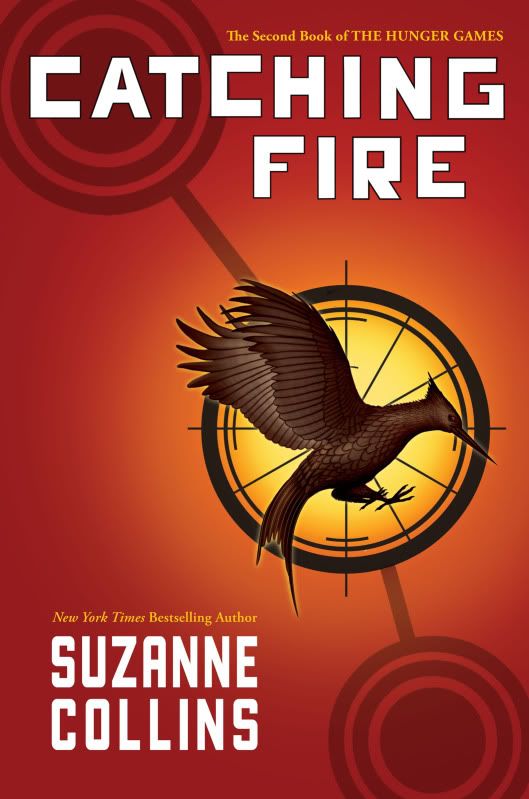Follow-up to my review of Suzanne Collins’ first book in the Hunger Games trilogy.

They say the second chapter of a trilogy is its darkest. The stakes are heightened, the danger deepened, families torn apart and friends forced to make deadly and dire choices. For examples of this, look to The Empire Strikes Back, The Two Towers, The Dark Knight, Mass Effect 2 and now, Suzanne Collins’ Catching Fire. It builds on the momentum established in The Hunger Games and draws the reader into the dangerous, hauntingly familiar and all too possible nation of Panem.
Katniss Everdeen, victor of the last Hunger Games, should be able to retire to a peaceful life in her home district, where her winnings and fame can feed the coal miners and families she grew up supporting through illegal hunting. However, her actions during the Games have had unforeseen consequences. Katniss, the girl on fire, has sparked something in the hearts of her fans all over Panem, and the smoldering dissent they feel is fanning into the full-on inferno of revolution. President Snow’s wish is for Katniss to downplay this if she can, to play the Capitol’s games once again. And if she fails, it’s not just Katniss’ life that will suffer or even end – it’s the lives of everyone and everything she loves.
Catching Fire does two things that the middle chapters of a trilogy can and should always do: expand the world and deepen the characters. We see more of Panem as Katniss takes her Victory Tour around the country, and characters who were given sketches of interesting pasts are more fully realized, like Haymitch and Katniss’ mother. I hesitate to mention other characters for fear of spoiling the myriad twists and turns the plot takes almost from the very beginning.
Even moreso than The Hunger Games, this book seems nearly impossible to put down. It seems like every few pages, there’s another surprise awaiting Katniss, something that upsets her momentum or throws her into flickers of doubt and despair. Yet this never becomes repetitive or exhausting. The pace is so meticulous and the timing so precise that as much as the events are artificially created by Collins as the author and the rulers of Panem in the story, the flow is natural and always exciting. And just when you think things are going to get better…
Well, read the book, and find out.
Catching Fire does fall a bit into the trap of some trilogy middle chapters in that it occasionally feels like a stopgap between the opening that drew us in and a conclusion that promises to rock our world. However, for the most part, Collins’ sense of pacing and character overwhelm any feelings we may have that the plot is not advancing. The focus remains on the characters, not the events, and those characters are as brilliant as ever.
I recommend this book as highly as I did The Hunger Games. It’s made me eager to read Mockingjay to find out what happens next, and if heading into my local library as quickly as possible to make that discovery isn’t an endorsement, I don’t know what is.

